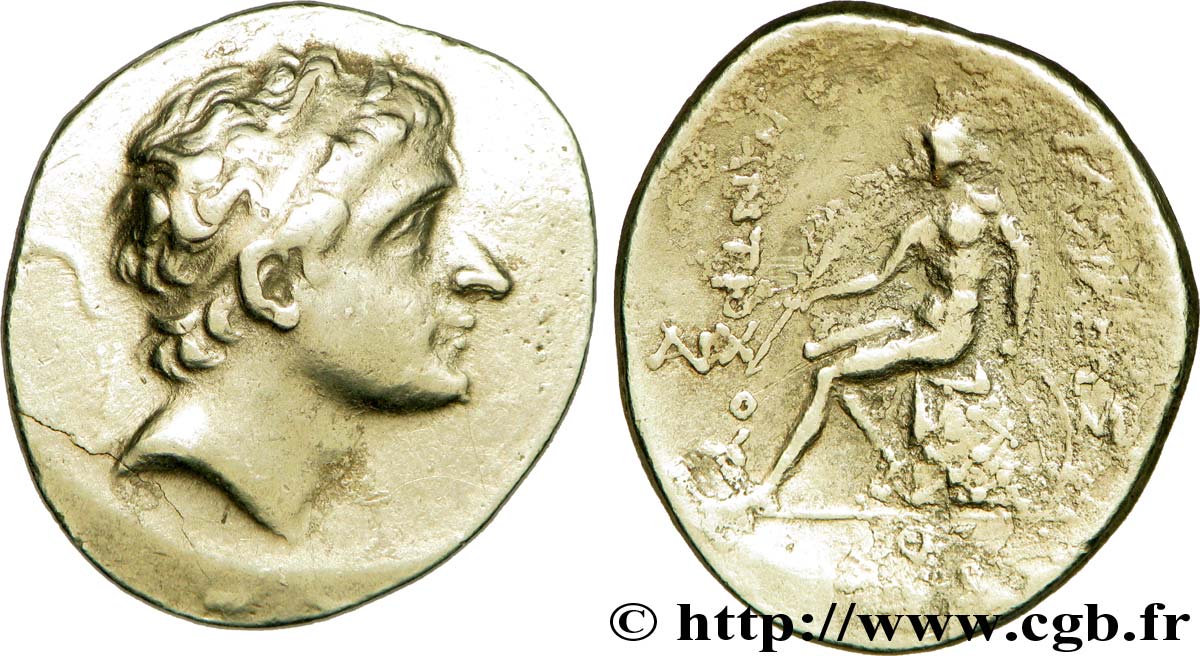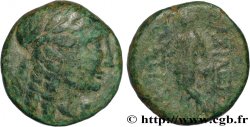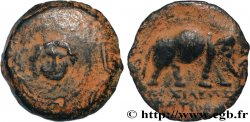v41_0285 - SYRIA - SELEUKID KINGDOM - ANTIOCHUS III THE GREAT Tétradrachme
MONNAIES 41 (2009)
Starting price : 225.00 €
Estimate : 750.00 €
Realised price : 275.00 €
Number of bids : 2
Maximum bid : 550.00 €
Starting price : 225.00 €
Estimate : 750.00 €
Realised price : 275.00 €
Number of bids : 2
Maximum bid : 550.00 €
Type : Tétradrachme
Date: c. 202 AC.
Mint name / Town : Atelier syrien
Metal : silver
Diameter : 34 mm
Orientation dies : 11 h.
Weight : 16,84 g.
Rarity : UNIQUE
Coments on the condition:
Exemplaire sur un flan extrêmement large, bien centré. Très beau portrait énigmatique. Frappe molle et faible au revers. Flan piqué et corrodé. A été nettoyé
Obverse
Obverse legend : ANÉPIGRAPHE.
Obverse description : Tête diadémée d'Antiochus III à droite.
Reverse
Reverse description : Apollon nu assis à gauche sur l'omphalos, tenant une flèche de la main droite et appuyé sur son arc de la main gauche.
Reverse legend : BASILEOS// ANTIOCOU/ (ANR)// Q
Commentary
Semble complètement inédit et non répertorié. Manque à tous les ouvrages consultés. De la plus grande rareté. Le portrait fait penser à ceux de la série III, pour l’atelier d’Ecbatane (SNG Spaer n° 769-77 = ESM. 604 à 608). Mais le revers ne correspond absolument pas et malgré nos recherches dans l’ouvrage d’Houghton et de Lorber, nous n’avons pas retrouvé trace de ce type de tétradrachme. Nous avons certainement affaire à un atelier secondaire, situé dans cette région.








 Report a mistake
Report a mistake Print the page
Print the page Share my selection
Share my selection Ask a question
Ask a question Consign / sell
Consign / sell
 Full data
Full data









